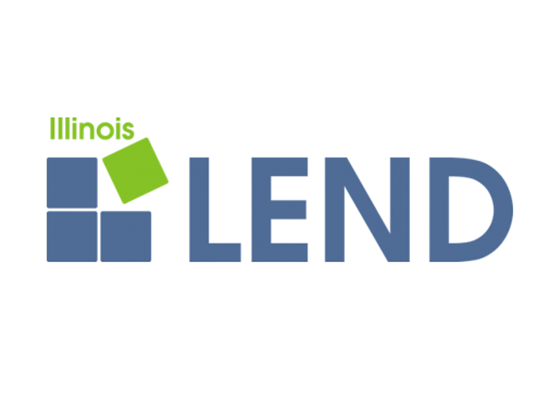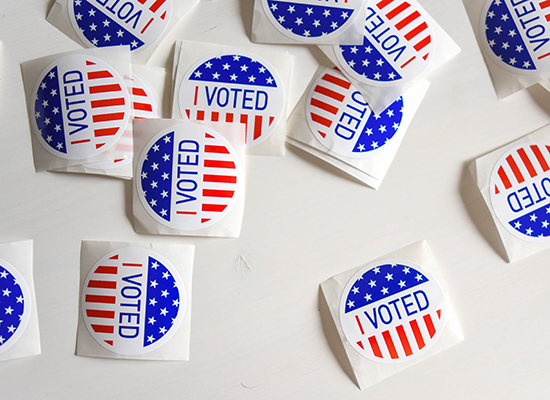IL LEND 2025-26 Training Program Taking Applications Until March 1

Build your leadership skills and improve the quality of life for people with disabilities through this free training program for graduate students, self-advocates and family members.
The University of Illinois Chicago’s (UIC) Leadership and Education in Neurodevelopmental and related Disabilities Program (IL LEND) training program is now accepting applications for the 2025-26 school year.
IL LEND is housed in the Department of Disability and Human Development at UIC. It is part of LEND’s nationwide network providing interdisciplinary training to improve the health and well-being of individuals with disabilities.
LEND focuses on providing individuals with the skills necessary to create positive change on all levels, from the individual to systems.
The IL LEND fellowship program brings together trainees from diverse backgrounds. The interdisciplinary leadership training includes 15 disciplines (see the IL LEND brochure for a complete list). Classroom and hands-on learning experiences focus on seven key areas:
- Leadership
- Public health
- Interdisciplinary clinical training and practice
- Cultural competence
- Family-centered care
- Emerging issues
- Research
Sessions take place over two semesters starting August 2025 and ending May 2026.
The training will focus on serving individuals with disabilities and their families through coordinated, culturally competent and family-centered care. It will also focus on gaining a deeper understanding of public health services and policy systems change.
Training will include:
- An individually tailored mentorship
- Weekly didactic (classroom) sessions
- Research or leadership projects
- Community outreach
- Policy and advocacy training
- Clinical training with a focus on Autism
There is no cost to participate in the fellowship program. Eligible trainees can receive a stipend.
This program is open to graduate students, adults with developmental disabilities, and parents and/or siblings of individuals with developmental disabilities. All trainees complete 300-plus hours of leadership and discipline-specific classroom (didactic), clinical and community training.
IL LEND trainees from the Chicago metropolitan area meet in person at UIC for their LEND training. Trainees can also join remotely through training sites at the University of Illinois at Urbana-Champaign and Southern Illinois University Carbondale.
The program gives priority to the following applicants:
• Family members
• Self-advocates
• Graduate students in the represented disciplines, which include nursing, social work, developmental pediatrics, disability studies and public health.
See the IL LEND graduate program brochure for more details and a complete list of study areas.
Read more about applying on the IL LEND website. You can also click on the links below to download the:
• Self-advocate application
• Family member application
• Graduate student application
The deadline to apply is March 1.
Empowering Every Voter: Voting Resources for People With Disabilities

Accessible guides and information on your rights and options as a voter with a disability
It’s important that individuals of all abilities have the opportunity to vote.
As the Nov. 5 election approaches, we want to highlight the resources available to help people with disabilities cast their ballots.
- The Arc has helpful voting resources, including a Disability Voter Guide in plain language in English and Spanish on how voting works, how to register to vote, how to help others vote and more. You can also find sample questions for candidates and a guide about issues that affect the disability community. Visit https://thearc.org/vote/.
- The American Association of People with Disabilities (AAPD) has an Election Engagement Hub that provides information and tools for disabled voters to engage as meaningfully as possible in their state, local and federal elections. You can find state-by-state voting guides, plain language definitions of voting words and more. AAPD also has the REV UP Voting Campaign, which aims to build the power of the disability vote through a national network of coalitions and organizations.
- The Autistic Self Advocacy Network has “Your Vote Counts: A Self-Advocate’s Guide to Voting in the U.S.” that includes how to prepare to vote and how to get accommodations when voting. It also explains the difference between a primary election and a general election and how the Electoral College works.
- Easterseals has a Voting Checklist for People with Disabilities to help people with disabilities make sure their voice is heard at the polls. The checklist explains how to learn about elections in your area, your rights as a voter with a disability, what to do if your rights are being violated and more. You can also download a voting resource card to take with you to the polls.
- Disability Vote IL provides voting resources and information for the disability community. The site offers updated nonpartisan videos, webinars and information on elections, how to register to vote, and promoting accessibility of voting technology and polling places. The website also includes information about transportation to the polls and the Be My Eyes app that helps people who are blind or have vision impairments with voting.
- The National Association of the Deaf has a voter information hotline to help individuals who are deaf or hard of hearing with questions about voting.
- The National Federation of the Blind has information and resources about accessible voting and nonvisual election technology.
You can also find these tools and guides in our online Resource Directory.
Everyone’s voice matters, and there are ways to make sure your vote counts!
Applications Open for the 2024-25 IL LEND Fellowship Program

This free training program prepares graduate students, self-advocates and family members to be leaders in improving health services for people with disabilities.
Family members, self-advocates and graduate students can apply for a free training program to build your skills and improve the quality of life for people with disabilities.
The University of Illinois Chicago’s (UIC) Leadership and Education in Neurodevelopmental and related Disabilities Program (IL LEND) training program is now accepting applications for the 2024-25 school year.
This yearlong interdisciplinary program will provide participants a deep dive into areas that include:
- Cultural competence
- Emerging issues
- Family-centered care
- Leadership
- Advocacy
- Serving children with autism and other disabilities and their families
- Services and systems change
IL LEND is housed in the Department of Disability and Human Development at UIC. It is part of LEND’s nationwide network providing interdisciplinary training to improve the health and well-being of individuals with disabilities. LEND focuses on providing individuals with the skills necessary to create positive change on all levels, from the individual to systems.
The IL LEND fellowship program brings together trainees from diverse backgrounds. Trainees will participate in classroom learning and a wide variety of hands-on experiences.
Training will focus on serving individuals with disabilities and their families through coordinated, culturally competent and family-centered care and gaining a deeper understanding of public health services and policy systems change.
Training will include:
- An individually tailored mentorship
- Weekly didactic (classroom) sessions
- Research or leadership projects
- Community outreach
- Policy and advocacy training
- Clinical training with a focus on Autism
There is no cost to participate in the fellowship program. Eligible trainees can receive a stipend.
This program is open to graduate students, adults with developmental disabilities, parents and/or siblings of individuals with developmental disabilities, and individuals from diverse backgrounds.
IL LEND trainees from the Chicago metropolitan area meet in person at UIC for their LEND training. Trainees can also join remotely through training sites at the University of Illinois at Urbana-Champaign (UIUC) and Southern Illinois University Carbondale (SIU).
The program gives priority to the following applicants:
- Family members
- Self-advocates
- Graduate students in the represented disciplines, which include nursing, social work, developmental pediatrics, disability studies, and public health.
See the IL LEND graduate program brochure for more details and a complete list of study areas.
Download the IL LEND Fellowship Program application flyer to review or share.
Read more about applying on the IL LEND website. You can also click on the links below to download the:
The deadline to apply is March 25.
If you have questions about the fellowship program, contact Kruti Acharya at acharyak@uic.edu or (312) 413-1495.
To learn more about IL LEND, visit www.illinoislend.org.


